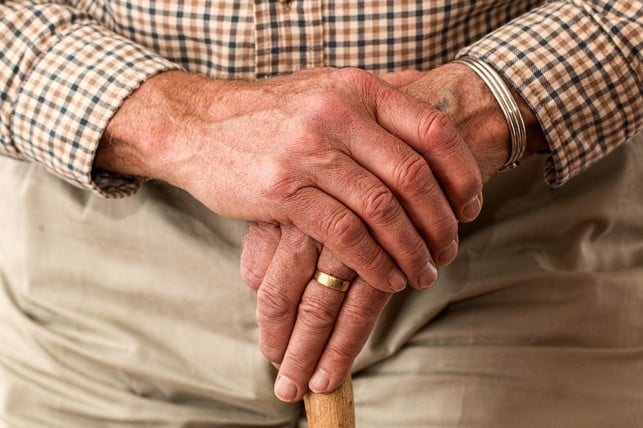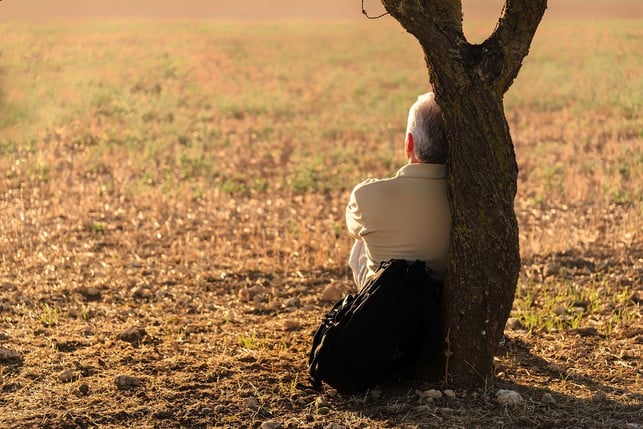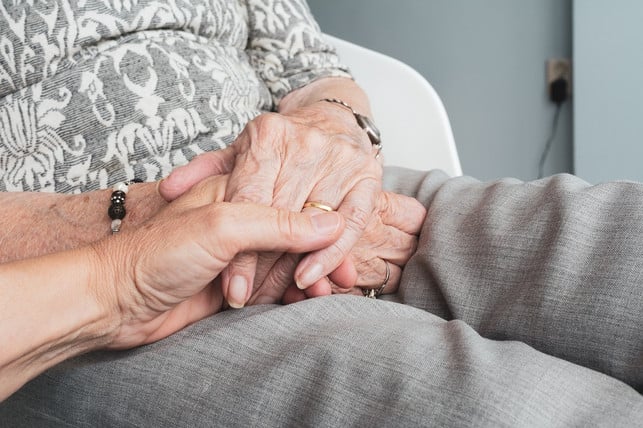
All people want to feel connected. But for some this is less easy than for others. The risk factors for loneliness depend on different circumstances. We introduce you to five important ones.
In addition to food, clothing and security, connection is also one of the basic human needs. If you don’t feel connected, you’ll become lonely. It is therefore important to understand the risk factors for loneliness in order to help yourself and others and ensure better coexistence.
The ZQP Foundation defines loneliness as “the stressful feeling of missing security, belonging and understanding”. This can be a temporary situation or a long-term condition.
There are numerous life circumstances that can trigger these feelings. Psychologists summarize them into five risk factors that promote loneliness, lead to social isolation and shorten life expectancy.
1. Risk factor: Old and young are more likely to be lonely

(Photo: CC0 / Pixabay / stevepb)
When most people hear the term “loneliness risk factor”, age is probably the first thing that comes to mind. In fact, it is not uncommon for people to become lonelier as they get older. Older people are increasingly losing relatives, are often less mobile and connected and sometimes suffer from poverty in old age. As a result, they are less able to make new contacts or maintain old acquaintances and are less able to participate actively in life (with others).
The AOK warns of loneliness in old age, especially when limited mobility also leads to isolation. These problems can significantly reduce a person’s life expectancy.
But it’s not just old people who are affected by age-related risk factors of loneliness. Young people also struggle with this feeling. They often have to first find their way, establish relationships and build networks. It can take until middle age before we experience subjective stability and connection.
In a study published in 2024, researchers will present the U-model. Loneliness is high at the beginning of our lives, decreasing in adult life until it stabilizes in middle age (bottom of the U). With increasing age, loneliness increases again and does not decrease until death.
Tip: One way in which young and old can come together is through housing cooperatives. Some cooperatives consciously advocate multi-generational concepts so that people of all ages can support each other.
2. Risk factor: Health-related loneliness

(Photo: CC0 / Pixabay / josealbafotos)
Often associated with advancing age is another risk factor for loneliness: poor health. People who are in need of care, have physical or cognitive disabilities, or are even bedridden are less able to participate in social life. A lack of connection can quickly make them lonely.
The challenge is that loneliness and health are interrelated. People with physical or psychological problems often live more withdrawn lives. People who feel lonely for various reasons are, in turn, more susceptible to illness.
According to the ZQP Foundation, consequences can be, for example:
- Sleep disorders
- negative thoughts and depressive moods
- dementia
- less exercise and obesity
- weak immune system
-
Heart disease and blood pressure problems
- physical pain
For example, it is often the case that loneliness is a symptom of depression, not its cause. In another guide you can find out how you can help people with depression.
3. Education and prosperity
As the two risk factors mentioned above show, loneliness is often linked to a limited ability to participate in social life. The North Rhine Medical Association therefore names a migration background, low income and unemployment as further risk factors for loneliness.
People with good education get a better job, earn more and the financial resources enable them to do social activities such as going to the cinema, going to a restaurant or (sustainably) traveling on holiday. So they may be less isolated or lonely.
Unfortunately, people with a migrant background or from less wealthy families are particularly affected by this risk factor. In addition, people with less wealth may be looked down upon, which can lead to increased marginalization and bullying.
In this context, a long-term study explains that this also has to do with self-confidence and the belief in self-realization. People who lack this (for example because of exclusion) are more likely to be lonely.
Scientists from San Diego also explain that highly educated people benefit from wisdom as they age. They are therefore particularly self-reflective, open-minded and able to embrace new perspectives. According to the researchers, wisdom can counteract loneliness.
4. Social isolation: risk and consequences

(Photo: CC0 / Pixabay / StockSnap)
Social isolation is not only a risk factor for loneliness, but also a possible consequence. Loneliness and isolation do not necessarily have to be mutually exclusive. Nevertheless, it is known that a person’s loneliness is closely related to the density of their social network.
In expert circles, the two factors are differentiated as follows:
-
Social isolation: Objectively speaking, the person has little interaction with others and social interaction is severely limited.
-
Loneliness: Describes the subjective feeling of feeling lonely and alone, even if you have a relatively dense social network.
In other words, a person can feel lonely even when surrounded by others. A socially isolated person, on the other hand, does not always have to feel lonely; it can also be a conscious decision to be alone.
Also interesting: Hikikomori: Why people isolate themselves voluntarily
However, a report by the American Psychological Association in Science Daily confirms that people who live alone, or are objectively considered socially isolated, are more susceptible to illness and have a shortened life expectancy.
Psychologists came to the same conclusion in an American study from 2019. People who have a close caregiver in old age (i.e. are not socially isolated) are less lonely and enjoy better health.
5. Women complain about being more lonely

(Photo: CC0 / Pixabay / sasint)
Another risk factor for loneliness relates to gender and sexual orientation. The following points were highlighted in a campaign against loneliness:
-
24 percent of women complain of loneliness.
- For men it is slightly less at 20 percent.
- Men are ten percent less likely to complain about loneliness.
- In addition, LGBTQ people are particularly at risk of loneliness. This has, among other things, to do with social stigmatization and exclusion.
Women are generally socialized to react more sensitively and emotionally than men and to internalize experiences. This inward turn can in turn be perceived as loneliness. However, the assumption that women are lonelier than men cannot be directly confirmed scientifically. After all, it is a complex social issue.
The scientist Pamela Qualter has published a study in which she looks at this possibility. Because of societal expectations, men find it harder to be vulnerable and admit loneliness. In her research, Qualter covered up the term “loneliness” and found that men actually feel lonely more often than the women surveyed.
Because loneliness is a subjective feeling, it is difficult to measure. It is therefore difficult to make a concrete statement about the influence of gender as a risk factor for loneliness.
Loneliness: counteracting risk factors

(Photo: CC0 / Pixabay / sabinevanerp)
The risk factors for loneliness are usually related to social status, environment, physical and financial opportunities and general health. Understanding these factors is helpful in counteracting loneliness and reducing the risks to yourself and others.
The Bundestag has commented on this and published the research results of the University of Bonn. It is an issue for health policy, as loneliness puts a strain on the health system and current trends such as digitalization and climate change increase the risk factors.
There are possible fields of action at the federal level:
-
Expanding research in the area of loneliness.
- Fund resources to measure and monitor loneliness.
-
Connect those affected. This also includes voluntary organizations, politics and offices.
-
Integrate loneliness commissioners into the political health system.
Of course, you don’t have to leave everything to politics. In the following articles you will find helpful tips on how to deal with loneliness in yourself and others:
- Overcoming loneliness: 5 tips on how to do it
- Combat loneliness: Experts explain how neighbors can help each other
- Christmas and loneliness: 24 tips on how you can easily make others happy
- This is what loneliness does to us – this is how we make it disappear
Tip: If you are worried about yourself or others, you can also seek medical advice or contact the telephone counseling service.
Read more on Techzle\.com:
- Environmental psychology: The psychology of the relationship between humans and nature
- New Year’s Eve alone: How to have a good start to the new year
- Summer depression: This is what Summertime Sadness is all about
** marked with ** or orange underlined Links to sources of supply are partly partner links: If you buy here, you are actively supporting Techzle\.com, because we then receive a small part of the sales proceeds. More info.